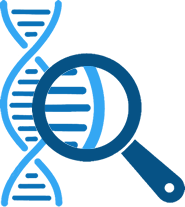
Physicians and Researchers
Possibly the largest kidney cancer program worldwide.1

Survival Rates
Stage 4 survival rates more than double the national average;
and remain higher across all stages.2

Kidney Cancer SPORE Awards
Awarded a Specialized Program of Research Excellence
(SPORE) Award from the National Cancer Institute.3

New Drug Development
Only program to develop a drug going from gene discovery to FDA approval.4

Nobel Prize - Immunotherapy
One of only two U.S. programs developing immunotherapies with a
Nobel Laureate in immunology research.5

The Right Therapy for the Right Patient
Developed first comprehensive, integrated, molecular, genetic, and pathological classification of kidney cancer advancing precision medicine.6

Radiation Expertise
Possibly the broadest, most innovative radiation oncology program for kidney cancer.7

Pioneer in Ablation
Among the first to develop kidney tumor ablation in the U.S.8
Leading Surgery Program
Top 3
Urology department in U.S.9
Top 10
Robotic kidney surgery program in U.S.8
National Research Hub

- UTSW ranks No. 1 globally in health care research10
- Possibly largest live kidney cancer tumor bank in the world 11
- Leading tumor implantation program in mice12
- First genetically-engineered mouse models of most common type of kidney cancer13
- Pioneering Medical Intelligence Platform14
REFERENCES
- 1 As of January 2020, the Kidney Cancer Program comprised more than 30 dedicated physicians, over 90 collaborating physicians, and more than 100 investigators distributed across 19 research tracks.
- 2 Analysis from UTSW Quality Improvement Office compared to national SEER data.
- 3 NIH Kidney Cancer SPORE Program. Kidney SPOREs | TRP (cancer.gov)
- 4 Discovered HIF-2ɑ gene and developed drug receiving FDA approval in 2021.
- 5 Two scientists have been awarded a Nobel Prize for Immunology Research in the United States in the last 20 years, Dr. Bruce Beutler at UT Southwestern Medical Center, and Dr. James Allison at University of Texas MD Anderson Cancer Center.
- 6 UT Southwestern investigators reported: (i) discovery that the BAP1 gene is mutated in 15% of clear cell renal cell carcinomas, the most common type of kidney cancer; (ii) mutations in BAP1 tend to be mutually exclusive with mutations in PBRM1; (iii) BAP1-deficient tumors are of high grade, whereas PBRM1-deficient tumors are of low grade; (iv) BAP1-deficient tumors are associated with poor survival whereas survival for patients with PBRM1-deficient tumors is better; and (v) BAP1 and PBRM1 genes control cancer aggressiveness (Peña-Llopis, Nat Genet, 2012; Joseph, J Urol, 2016; Peña-Llopis, Cancer Res, 2013; Gu, Cancer Discov, 2017).
- 7 Largest reported experience of stereotactic body radiation therapy (SBRT) beyond the brain (Wang, Int J Radiat Oncol Biol Phys, 2017) and first to report its deployment for oligoprogression as well as tumor extensions into large veins (tumor thrombi) (Straka et al., J Clin Oncol, 2013; Hannan, Cancer Biol Ther, 2015). Search of national clinical trials registry (clinicaltrials.gov) with the terms “Kidney Cancer” and “Stereotactic” (December 1, 2018) shows no other programs with similar breadth and number of active clinical trials.
- 8 Source: DFW County Hospital District Database, 2016; Solucient Database.
- 9 Third-party ranking using an Academic Score, see Kutikov, Eur Urol, 2012.
- 10 UTSW No. 1 worldwide for published research in health care category by Nature Index (2020).
- 11 Source: Elias et al., Cell Reports, 2021
- 12 Source: Sivanand et al., Sci Transl Med, 2012; Pavía-Jiménez et al., Nat Protoc, 2014.
- 13 Source: Gu et al., Cancer Discov, 2017.
- 14Developed Kidney Cancer Explorer, a self-updating platform linking clinical information, experimental genomics and tumor samples.







